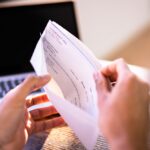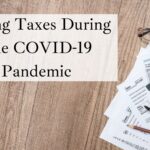The private student loan industry is booming, and so is private student loan debt. At the end of 2019, the Student Borrower Protection Center reports that people owed more in private student loans than for payday loans or past-due medical debt. Unfortunately, some borrowers find themselves unable to keep up with payments. What happens if you can’t pay your private student loans?
Federal and private student loans follow different rules. In certain circumstances, borrowers of federal student loans may be eligible for loan forgiveness, consolidation, income-driven repayment plans, or postponement options if they’re struggling to pay. However, private student loans typically don’t provide these types of options to help ease your debt burden.
Private student loans are offered by private companies such as banks. When you have a private student loan, you’ll have a set repayment plan. If you can’t pay on time, your private student loan will be considered delinquent, and you’ll be in default on your loan. Being in default on your loan can negatively impact you and your cosigner’s credit and financial health.
Free Private Student Loan Relief Helpline
Are you struggling to pay your private student loans, or are your loans in collections? The free Private Student Loan Relief Helpline can connect you with an experienced counselor to discuss your options to help reduce or settle your private student loans.
What Can Happen If You Don’t Pay Your Private Student Loans
For some, private student loans can be helpful. Private student loans can allow for a higher borrowing limit, especially if you have a cosigner with good credit. Unlike federal loans, they aren’t need-based, so private student loans can be used as a supplement when federal loans don’t cover all the borrower’s needs.
It’s critical to understand the condition of your private student loans, especially if you’re struggling to pay. Private student loans often:
- Start accruing interest immediately since they typically are not subsidized
- Have a variable interest rate, so your interest rate can change and go up
- Require you to begin repaying the loan while you’re still in school
- Offer few to no options for loan forgiveness or income-driven repayment plans
These types of loan terms can cause problems for borrowers and their cosigners, especially if they’re struggling to pay back the loan. Unlike a federal student loan, a private student loan typically defaults as soon as you miss a payment. However, check your contract for the specifics of your terms and conditions. If you default on your loan, the private lender is not required to offer you an option to help you get out of default status.
Here are some of the consequences you can face if you don’t pay your private student loans.
1. Your lender may contact your cosigner for payment.
If you miss payments, your lender may request payment from your cosigner, even if your loan isn’t in default. As the borrower, you’re still responsible for the loan, even if your cosigner makes some payments for you. The lender could also request immediate payment for the rest of the loan.
2. Your lender may hire a collection agency.
If you don’t make payments, you could end up in collections. A lender could hire a debt collection agency to try and obtain payment. Often, debt collection agencies will make numerous phone calls and send dunning letters to try and get you to make payments. The constant demand for payment can be stressful.
A debt collector who is trying to collect on a private student loan doesn’t represent or work for any branch of the U.S. government. In general, they can’t garnish your wages or take your tax refund unless they have a court order. Your loan agreement should indicate whether you can also be charged collection fees. If you can be charged collection fees, your loan balance could go up.
If a debt collector contacts you, you do have rights. For instance, the collector can’t call you at work, before 8 am, or after 9 pm unless you told them they could. They can’t use abusive language or lie to you. Additionally, the Fair Debt Collection Practices Act also gives you the right to request that they stop contacting you, although they can still contact you to tell you about the actions they’re taking.
3. Your debt could be reported to credit bureaus.
A defaulted loan can negatively impact your credit score and credit report, as well as the credit score and report of any cosigners. As a result, it’s harder to qualify for other types of credit, such as credit cards, mortgages, or car loans. You and your cosigners also won’t be able to qualify for lower interest rates loans. Unfortunately, it can take time to repair your credit.
4. You could be sued.
If you don’t pay, your lender can sue you and your cosigner to try and collect on the debt. If they are awarded a judgment, the lender could begin garnishing wages to collect on the debt. If this happens for a private student loan, the wage garnishment could be as high as 25 percent of your income, although this can vary by state. Additionally, the court could allow the lender to seize some of your assets or place liens against any property you or the cosigner own.
Take Action if You’re Falling Behind on Your Private Student Loans
Realizing that you might not be able to pay your private student loan on time can feel scary and overwhelming. But waiting or doing nothing will lead to more problems. Ideally, try to avoid defaulting. If you’re struggling to pay your loans, talk to your lender to see if they will work with you on options to help you pay back your loan.
Alternatively, you can get professional guidance to assist you. The Private Student Loan Relief Helpline at (888) 669-1064 can connect you with an expert who will discuss your situation and potential strategies to help, even if your loans are in collections.









